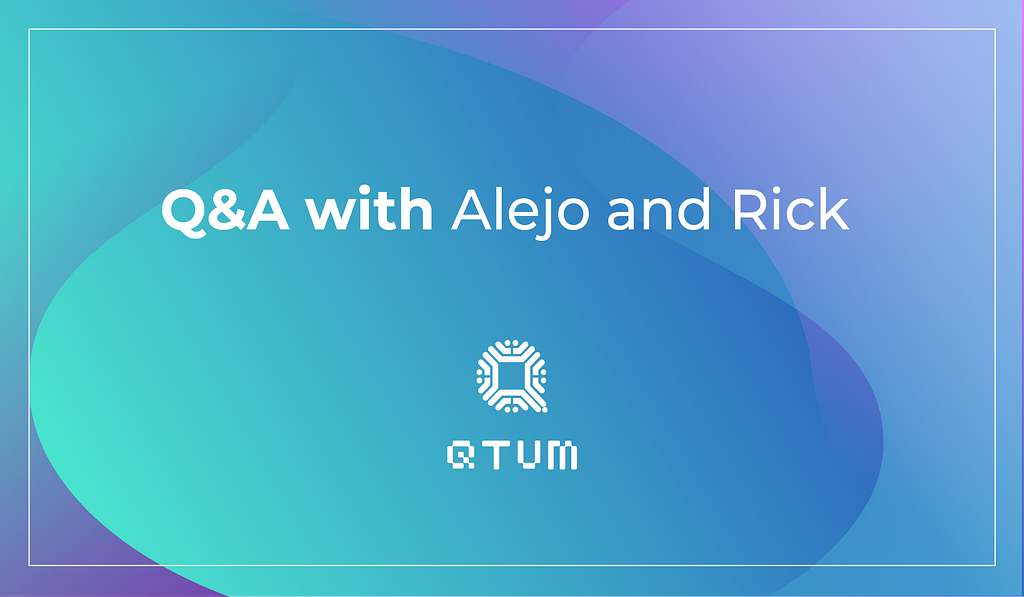Q&A with Qtum Developers: Rick and Alejo: Ordinals, Janus, Qnekt, and more.
1
0

Q: What is Qtum, and how does it stand out from other blockchains?
A: Qtum is a layer-one blockchain that combines the best of both worlds. It takes the bookkeeping features from Bitcoin and the smart contract functionality from Ethereum, creating a unique and powerful platform for decentralized applications (dApps) and smart contracts.
Q: How do developers create smart contracts on Qtum?
A: Developers can write smart contracts on Qtum using Solidity, the same language used in Ethereum. This makes it accessible for developers already familiar with Ethereum’s smart contract development.
Q: Can you explain the security aspect of Qtum?
A: Qtum ensures security by translating all transactions into Bitcoin’s format. This approach enhances security and minimizes vulnerabilities.
Q: What’s the current focus of Qtum’s ecosystem expansion? (Rick)
A: Our main focus is to bring more dApps and games into the Qtum community. We’re actively assisting game developers in integrating blockchain technology. Additionally, we aim to bridge the blockchain for seamless fund flow.
Q: What are you working on, Alejo?
A: I’m working on expanding the ecosystem to enable developers and the community to carry out transactions. Our collaboration with Janus allows Qtum to interact with Ethereum, making Qtum compatible with Ethereum-based solutions.
Q: What are Bitcoin ordinals, and how do they benefit Qtum?
A: Ordinals work by attaching a sequence number to each satoshi, storing all data in the blockchain. This is more decentralized and secure. While Qtum can already create NFTs without ordinals, having both ordinals and smart contracts offers additional benefits.
Q: How does Janus work in connecting Qtum and Ethereum?
A: Janus acts as a bridge, translating Ethereum commands to Qtum. It enables these two distinct blockchains to work together, facilitating communication between them.
Q: What is Qtum Qnekt, and why is it needed?
A: Qtum Qnekt is an in-browser wallet similar to Metamask. Due to Qtum’s hybrid nature, a Metamask wallet can’t work with it. Qnekt integrates with Janus to interact with Qtum nodes, offering an essential tool for games, the Metaverse, NFTs, and more.
Q: Is Qnekt integrated with Janus?
A: Yes, Qnekt utilizes Janus to interact with the Qtum testnet and mainnet, ensuring seamless communication.
Q: Can you explain how developers can interact with a Qtum node?
A: Developers need the Janus URL and their keys to interact with a Qtum node, making it accessible for development and transactions.
Q: What’s the progress on Qtum Qnekt’s development?
A: Qtum Qnekt is in its final phase, awaiting an audit before it’s uploaded to the Chrome store. The development is ongoing, with plans for Crypto Canvas 4.
Q: Are there other protocols you monitor for Qtum’s future development? (Rick)
A: Yes, we’re exploring the 6551 token-bound accounts, particularly for games and NFTs. This feature provides personalized accounts for NFTs, offering a seamless way to manage and receive NFT-related assets.
Q: Do users have to pay gas with 6551 accounts?
A: While the proposal suggests that using 6551 accounts may save gas when transferring NFTs, we haven’t seen significant differences in gas usage at this time.
Q: What’s Alejo currently working on?
A: I’m focusing on the 1155 standard, which combines features of both fungible and non-fungible tokens. It offers flexibility, and we’re exploring its potential applications.
Q: Can you tell us more about the 1155 standard and its potential?
A: The 1155 standard is a versatile token standard, allowing assets to exhibit characteristics of both fungible and non-fungible tokens. It’s flexible and opens up exciting possibilities, especially for gaming and NFTs.
That concludes our Q&A session with Qtum developers Rick and Alejo. We hope you’ve gained valuable insights into the world of Qtum, its unique features, and the innovative projects they are working on.
You can listen to the whole conversation here: Twitter Space Talk with Qtum Developers.
Thank you for reading! We look forward to bringing you more exciting updates from the blockchain space in the future.
1
0
 Manage all your crypto, NFT and DeFi from one place
Manage all your crypto, NFT and DeFi from one placeSecurely connect the portfolio you’re using to start.




